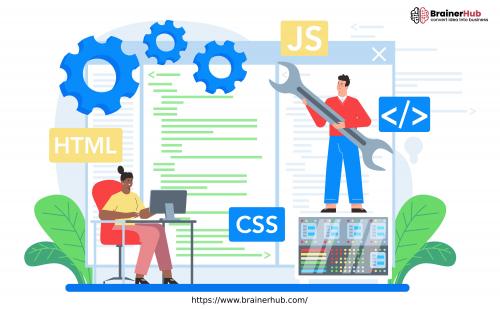Python App Development: Is It the Right Choice for Mobile Apps?

Introduction
Python, a versatile and high-level programming language, has gained immense popularity in various domains, including web development, data science, and artificial intelligence. However, when it comes to mobile app development, the question arises: Is Python the right choice? In this article, we'll explore the factors that make Python a compelling option for mobile app development and discuss its strengths and limitations in this domain.
Cross-Platform Development with Kivy
One of Python's significant advantages in mobile app development is its ability to facilitate cross-platform development. The Kivy framework, a Python library, allows developers to create applications that run on both Android and iOS platforms. This capability reduces development time and resources, making Python a cost-effective choice for businesses targeting a diverse user base.Rapid Prototyping with Flask and Django
Python's web frameworks, such as Flask and Django, are well-known for their simplicity and rapid development capabilities. While primarily used for web applications, these frameworks can be integrated into mobile app projects, enabling quick prototyping and efficient development cycles. This agility is especially valuable for startups and businesses aiming to launch their apps swiftly.Extensive Libraries and Frameworks
Python boasts a rich ecosystem of libraries and frameworks that can be leveraged for mobile app development. For example, frameworks like BeeWare and Pyqtdeploy enable the creation of standalone, native applications for different platforms. Additionally, popular libraries like Requests and NumPy enhance functionality and data manipulation capabilities in mobile apps.Ease of Learning and Community Support
Python's syntax is clear and readable, making it an accessible language for developers with varying levels of expertise. The extensive community support further contributes to the ease of learning and problem-solving. Developers can find abundant resources, tutorials, and forums to seek guidance and share insights, fostering a collaborative environment.
Integration with Native Code
Python allows seamless integration with native code, enabling developers to incorporate performance-critical components in languages like C or C++. This flexibility is crucial for scenarios where specific functionalities demand lower-level optimizations or when interfacing with existing native libraries is necessary.
Performance Concerns
Python's interpreted nature may lead to performance challenges, especially in resource-intensive applications. Although integration with native code mitigates this to some extent, developers should carefully consider performance requirements.
Limited Access to Native APIs
Python may not provide direct access to all native APIs compared to languages like Swift for iOS or Kotlin for Android. This limitation could impact the utilization of platform-specific features.
What Type of Apps Can You Develop in Python?
Python is a versatile programming language that can be used to develop a wide range of applications across various domains. The language's simplicity, readability, and extensive libraries make it suitable for diverse purposes. Here are some types of apps that you can develop using Python:
Web Applications
Python's web applications frameworks, such as Django, Flask, and Pyramid, make it well-suited for developing dynamic and scalable web applications. These frameworks provide tools for handling routing, database interactions, and template rendering.
Data Science and Machine Learning Apps
Python is a go-to language for data science and machine learning projects. Libraries like NumPy, Pandas, TensorFlow, and scikit-learn empower developers to build applications for data analysis, predictive modeling, and machine learning.
Desktop GUI Applications
Python offers libraries like Tkinter, PyQt, and wxPython for creating graphical user interfaces (GUIs) for desktop applications. These can range from simple utilities to more complex tools with interactive interfaces.
Games and Multimedia Apps
Python, with libraries like Pygame, can be used to develop 2D games and multimedia applications. While not as performance-oriented as some other languages, Python is suitable for creating casual games and multimedia tools.
Mobile Apps
Python Development Services can be used for mobile app development, particularly for cross-platform apps. Kivy and BeeWare are frameworks that allow developers to create mobile applications that run on both Android and iOS platforms.
Scientific and Engineering Applications
Python is widely used in scientific and engineering communities. Applications in fields such as physics, biology, and engineering benefit from Python's simplicity and the availability of scientific libraries like SciPy.
Automation Scripts
Python is a popular choice for scripting and automation tasks. Whether automating system administration, data processing, or repetitive tasks, Python's readability and ease of use make it a preferred language.
Networking and Cybersecurity Tools
Python is extensively used for developing networking tools and cybersecurity applications. Libraries like Scapy and frameworks like Flask can be employed to build network scanners, packet analyzers, and security tools.
Educational Software
Python's readability and simplicity make it an excellent choice for educational purposes. Many interactive educational tools, programming environments for beginners, and simulation software are developed using Python.
Content Management Systems (CMS)
Django, a high-level Python web framework, is commonly used for building content management systems. It simplifies the development of robust and feature-rich CMS applications.
Internet of Things (IoT) Applications
Python can be used in IoT development, both on the device and in backend systems. MicroPython and CircuitPython are Python variants designed for embedded systems.
E-commerce Platforms
Python, especially with Django, can be employed to build e-commerce platforms. Django's built-in features, such as ORM (Object-Relational Mapping) and template engine, streamline the development process.
Python's versatility and extensive ecosystem of libraries and frameworks make it suitable for a wide array of applications. The choice of Python depends on the specific requirements and constraints of the project, and developers often leverage its strengths in different domains.
Conclusion
In conclusion, Python presents a viable option for mobile app development, particularly for projects that prioritize cross-platform compatibility, rapid prototyping, and a rich ecosystem of libraries. The decision to choose Python depends on the specific requirements of the app and the trade-offs between development speed, performance, and access to platform-specific features. With the right considerations, Python can be a powerful ally in creating innovative and efficient mobile applications.

Comments